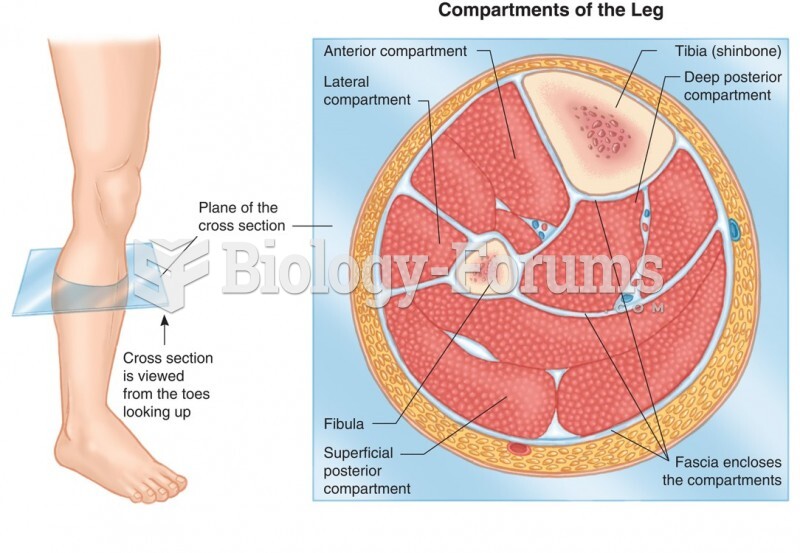|
|
|
Critical care patients are twice as likely to receive the wrong medication. Of these errors, 20% are life-threatening, and 42% require additional life-sustaining treatments.
As many as 28% of hospitalized patients requiring mechanical ventilators to help them breathe (for more than 48 hours) will develop ventilator-associated pneumonia. Current therapy involves intravenous antibiotics, but new antibiotics that can be inhaled (and more directly treat the infection) are being developed.
Each year in the United States, there are approximately six million pregnancies. This means that at any one time, about 4% of women in the United States are pregnant.
Human neurons are so small that they require a microscope in order to be seen. However, some neurons can be up to 3 feet long, such as those that extend from the spinal cord to the toes.
When blood is exposed to air, it clots. Heparin allows the blood to come in direct contact with air without clotting.
 Forensic anthropologists working at a temporary morgue following the recovery of remains from a floo
Forensic anthropologists working at a temporary morgue following the recovery of remains from a floo
 New England children like David, Joanna, and Abigail Mason (painted by an unknown artist around 1670
New England children like David, Joanna, and Abigail Mason (painted by an unknown artist around 1670





